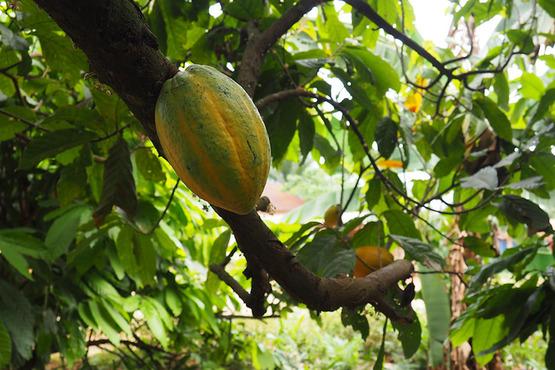Project Overview
Ghana is the world's second-largest exporter of cocoa, but the sector faces sustainability challenges, largely due to conversion of forests to agricultural land. Despite growing global demand for chocolate, cocoa yields are low due to weak tree and soil management, pests and diseases, limited technical expertise and a lack of access to improved inputs and affordable financial schemes. This project will build on national policies and strategies to eliminate deforestation and degradation in the cocoa supply chain while restoring degraded lands and forests. It will also improve forest cover and watershed protection by implementing sustainable forest management and other restoration actions.
Sites:
Pra River Basin
Commodities:
Cocoa
Area Covered:
190,000 hectares
Executing Partner and GEF Implementing Agency:
World Bank

Project features
The goal is to promote landscape-level restoration to improve food and ecosystem services in cocoa landscapes by improving integrated landscape management systems and governance.
Site level assessments and mapping in cocoa production areas and promoting sustainable agricultural practices in food production systems will improve forest cover and watershed protection.
Built up around a multi-stakeholder strategy designed to eliminate deforestation and degradation in the cocoa supply chain and restore degraded lands and forests, it will engage with more than 30 leading cocoa and chocolate companies that have signed a zero-deforestation pledge and support their efforts to scale up key investments. It is aligned with various government policies, plans, and strategies that focus on food security, halting deforestation caused by commodity production, ecosystem restoration, and economic development.
Both the public and private sectors will be engaged in gender mainstreaming and implement coordinated efforts to close gender gaps, which will be determined through an assessment.

Cocoa in Ghana. By Ahtziri Gonzalez/CIFOR







